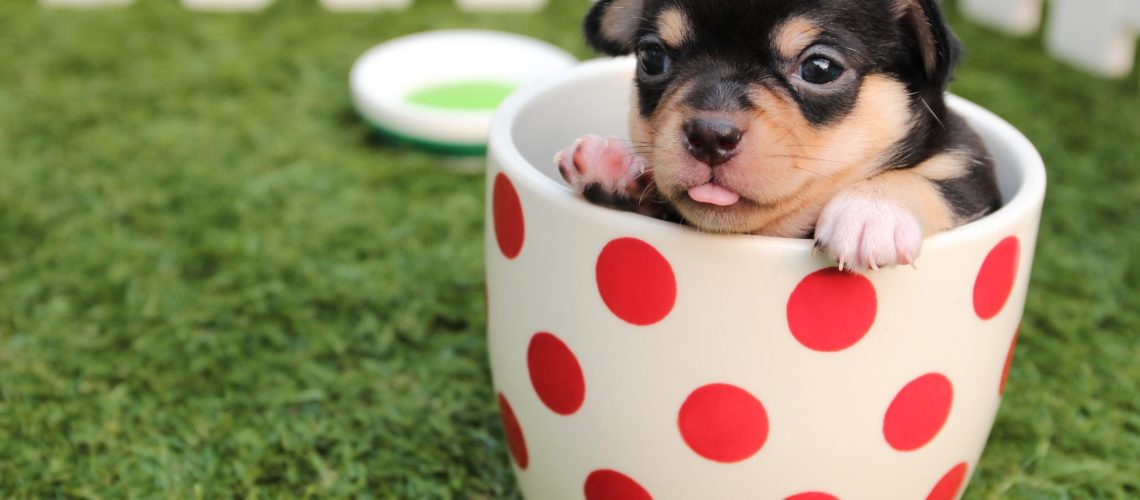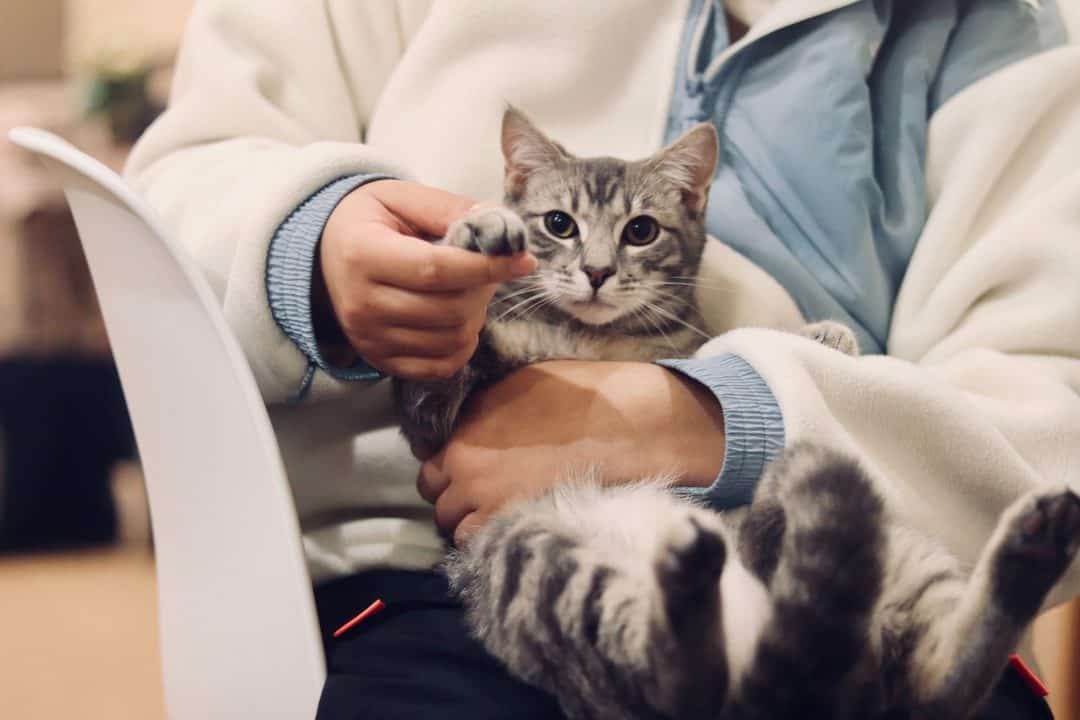Key Takeaways:
- Teacup dogs are extremely small and fragile, often weighing less than 4 pounds.
- They require special care and attention due to their delicate nature, including regular vet check-ups and a careful diet.
- Teacup dogs have a higher risk of health issues such as hypoglycemia, heart problems, and bone fractures.
- Their small size makes them more susceptible to injuries from accidental falls or rough handling, so they should be handled with extra caution.
- Although they may seem adorable, teacup dogs are not recognized as an official breed by major kennel clubs and can often be the result of unethical breeding practices.
Are you curious about those adorable little dogs that fit in teacups? Well, get ready to be amazed because this article is going to reveal everything you need to know about teacup dogs! Whether you're a dog lover or just interested in learning more about these pint-sized pups, delving into this subject will not only bring joy and entertainment but also provide valuable insights into the world of canine companionship. Understanding the intricacies of teacup dogs is essential for anyone considering bringing one into their home or simply wanting to expand their knowledge of different dog breeds. So, let's dive right in and explore the fascinating world of teacup dogs together! Get ready to discover surprising facts, debunk common misconceptions, and gain a deeper appreciation for these tiny canines. By the end of this article, you'll have a well-rounded understanding that will leave you eager to share your newfound knowledge with friends and family. Get ready for a journey into the captivating realm of teacup dogs!
What are Teacup Dogs and Why are They Called That?
Teacup dogs are a special category of small dog breeds that are bred to be extremely tiny. They get their name from their size, which is comparable to a teacup. These adorable pups can fit comfortably in the palm of your hand and are incredibly cute.
The term "teacup" is used to describe these dogs because they are so small that they can easily fit into a teacup. It's a way to emphasize just how tiny and delicate they are. The name has become popular in recent years as more people have shown interest in owning these miniature dogs.
How Small Do Teacup Dogs Typically Grow and Which Breeds are Commonly Bred to be Teacups?
Teacup dogs usually grow to be around 4-7 inches tall at the shoulder and weigh between 2-5 pounds. They stay small throughout their lives, unlike regular-sized dogs that grow larger as they age.
Several dog breeds are commonly bred to be teacups, including Chihuahuas, Yorkshire Terriers, Maltese, Pomeranians, and Shih Tzus. These breeds already tend to be small, but breeders selectively choose the smallest individuals within these breeds for further breeding to create even smaller teacup versions.
Are Teacup Dogs Healthy or Do They Have More Health Problems Compared to Regular-Sized Dogs?
Teacup dogs often have more health problems compared to regular-sized dogs due to their extremely small size. Their tiny bodies can be more fragile and susceptible to various health issues.
Some common health problems seen in teacup dogs include respiratory issues, heart conditions, dental problems, bone fractures, and hypoglycemia (low blood sugar). Their small size also makes them more vulnerable to injuries from accidents or falls.
What Kind of Care and Special Attention Do Teacup Dogs Require Due to Their Small Size?
Teacup dogs require special care and attention due to their small size. Here are some important considerations:
Diet:
Teacup dogs have higher metabolism rates than larger dogs, so they need to eat smaller, more frequent meals throughout the day. It's crucial to provide them with a balanced diet that meets their nutritional needs without overfeeding them.
Exercise:
While teacup dogs don't require as much exercise as larger breeds, they still need regular physical activity to stay healthy. Short walks and play sessions indoors or in a safe, enclosed area are ideal for them.
Safety:
Due to their small size, teacup dogs are at risk of injury from accidental falls or being stepped on. It's essential to create a safe environment for them by removing any potential hazards and supervising them closely.
Can Teacup Dogs Be Good Pets for Families with Young Children? Why or Why Not?
Teacup dogs may not be the best pets for families with young children. Here's why:
- Fragility: Teacup dogs are extremely delicate and can be easily injured if mishandled by young children who may not understand how fragile they are.
- Patience Required: These tiny dogs often have low tolerance for rough play or sudden movements, which can lead to stress or fear-related behavior problems.
- Accidental Harm: Young children may unintentionally hurt or drop the teacup dog due to their small size, causing injury to the dog.
Are There Any Challenges or Risks Associated with Owning a Teacup Dog that Potential Owners Should Be Aware Of?
Owning a teacup dog comes with its own set of challenges and risks. Here are some important points potential owners should be aware of:
- Health Issues: Teacup dogs are more prone to health problems compared to regular-sized dogs, which can result in higher veterinary bills and ongoing medical care.
- Fragility: Their small size makes them vulnerable to injuries from accidents or falls, so extra precautions must be taken to keep them safe.
- Socialization Needs: Teacup dogs require proper socialization from an early age to prevent fear or aggression issues. This involves exposing them to different people, animals, and environments in a positive and controlled manner.
Important Factors to Consider Before Bringing a Teacup Dog into Your Home
If you're considering bringing a teacup dog into your home, here are some crucial factors to think about:
- Lifestyle: Consider whether your lifestyle is suitable for owning a teacup dog. They require attention, regular feeding schedules, and may not be able to keep up with highly active households.
- Maintenance Needs: Teacup dogs often require more grooming due to their long coats. Regular brushing and occasional professional grooming appointments will be necessary.
- Budget: Owning a teacup dog can be expensive. They may require specialized veterinary care and their small size makes them more susceptible to accidents or health issues.
In conclusion, teacup dogs are small and delicate pets that require special care and attention. It is important to research and understand their specific needs before deciding to bring one into your home.
What are the requirements for a teacup dog?
Teacup dogs are specifically bred to be extremely small, often weighing 5lbs or less. The toy dog group, including teacup pugs and Yorkshire terriers, are the most well-known examples of teacup dogs. However, other breeds like beagles have also been bred to be miniature in size.
How long do teacup dogs live?
The lifespan of teacup dog breeds varies depending on the breed, but on average they live for nine to 15 years. Teacup dogs are bred intentionally by selecting the smallest puppies from a litter, resulting in progressively smaller dogs.
Are teacup dogs hard to take care of?
Because teacup puppies are tiny, they are more susceptible to health issues related to their delicate bones. These health problems can become serious and life-threatening very quickly. It is important to handle teacup puppies with extra care, take them to the veterinarian regularly, and be prepared for any potential medical emergencies.
Do teacup dogs bark a lot?
Chihuahuas and other small or teacup breeds have earned their reputation for excessive barking, even at minor stimuli like the wind. In this article, we will address frequently asked questions about training a Chihuahua without the use of training collars, and without becoming frustrated.
Are teacup dogs worth it?
Teacup dogs are at a higher risk of health problems compared to larger breeds due to their small size, which can result in underdeveloped organs and bones, making them more prone to hypoglycemia, heart defects, and respiratory issues. Additionally, owning a teacup dog can be expensive.
Do teacup dogs go on walks?
It is crucial to walk small dogs because they can experience mental and behavioral issues, as well as obesity, if they do not get enough activity. Small dogs are more susceptible to heart problems and obesity compared to larger dogs, and regular exercise can prevent these issues and increase their lifespan.

















